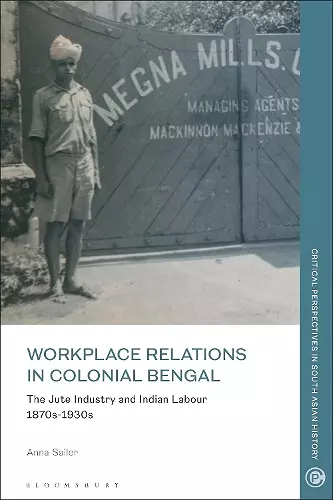Workplace Relations in Colonial Bengal
The Jute Industry and Indian Labour 1870s-1930s
Format:Hardback
Publisher:Bloomsbury Publishing PLC
Published:24th Feb '22
Currently unavailable, and unfortunately no date known when it will be back

A study analysing the workplace in colonial Bengal’s jute industry, offering a new engagement with labour processes and insight into labour movements from 1870 to 1930.
This book connects the history of labour movements with the transformation of workplace relations in South Asia from the late 19th century to the 1930s. Contending that labour conflicts in the Bengal jute industry must be understood against the backdrop of a radical change in the organisation of work in this period, Sailer shows how this led to a rupture in worker’s relations in the workplace and beyond.
Moving away from polarities such as class/culture or modernity/tradition and reconsidering the context around industrial conflicts in this period, Workplace relations in Colonial Bengal offers a new framework to analyse the changing organisation of work in colonial India, and identifies the implications for worker relations both inside and outside the factory. Focusing on a major colonial era industry, this book opens up new perspectives n the history of workers and colonial capitalism in modern India.
This book reminds us that we must know what happens on the shop-floor to understand the factory. In South Asian labour historiography, we have theorized capitalist strategy without paying sufficient attention to the actual work process. It is also blindingly obvious, as the author of this book points out, that workers’ everyday experience of work is critical to their politics. * Samita Sen, Vere Harmsworth Professor of Imperial and Naval History, Cambridge University, UK *
[This book] highlights the importance of work relations and the organisation of work – conventionally known as labour process theory – in our understanding of the Jute Industry, its working population and its political economy between the 1870s and the 1940s in Calcutta…The discussion presented in the monograph is illuminating and analytically valuable. * Dhiraj Kumar Nite, Social Scientist, Ambedkar University Delhi, India *
ISBN: 9781350233539
Dimensions: unknown
Weight: 608g
312 pages